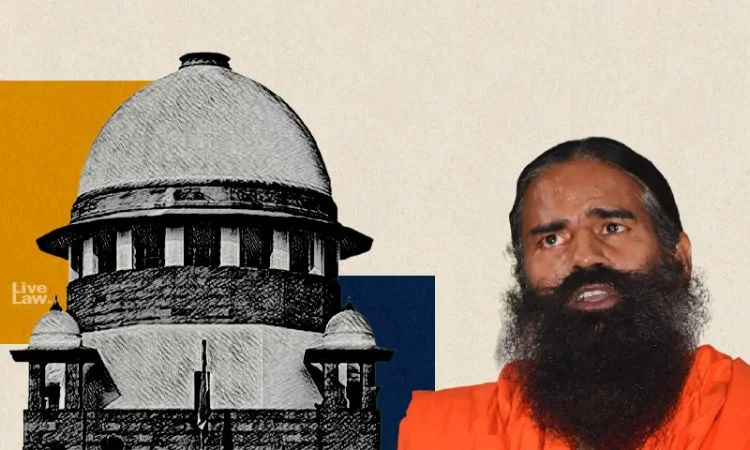In a highly anticipated hearing, yoga guru Baba Ramdev and Patanjali Ayurved chief Acharya Balkrishna were summoned before the Supreme Court today to address allegations of misleading advertisements.

The Backstory
Baba Ramdev and Balkrishna are Indian home-grown celebrities, who make yoga and Ayurveda seem to be alternatives to medicine that are not expensive, have no side-effects and can really help people. As early as 2006, both of them started Patanjali Ayurved, another billion dollar industry which is now selling herbal products. Nevertheless, it has been a subject of much criticism over the years with regard to its non-compliance with the laid-down standards.
Ramdev’s ads are filled with Patanjali products like Shilajit malini for weight loss or Divya Medohar or Divya Madhunasini Vati for diabetes management. The only way for people with these illnesses to live better lives is to cope with their conditions over a long period of time, not just to cure them once and forever. However, others find Patanjali’s simplistic solutions and repeated slogans as an unnecessary belittling of some problems, which can prevent people from going to their doctors.
The Supreme Court Weighs In
In 2015, the apex court first prohibited “unfair” ads making unsubstantiated treatment promises. It noted companies were misleading consumers by claiming cures without scientific proof. Patanjali assured the court it would comply and not disseminate ads violating the Drugs and Magic Remedies Act.
However, non-compliant promotions continued to air on TV and social media. In February 2022, the Supreme Court issued a notice of contempt to Patanjali for disregarding past orders. It summoned Baba Ramdev and Acharya Balkrishna to explain why contempt charges should not be initiated for personally endorsing such ads.
The Apology and Today’s Hearing
In March, Acharya Balkrishna submitted an unconditional apology on Patanjali’s behalf. While welcoming scientific research on Ayurveda, he acknowledged ads breached court assurances. Skeptics though remained doubtful about the sincerity of this late repentance.
That sets the stage for today’s high-stakes hearing. The Supreme Court will hear arguments on whether to prosecute Patanjali for contempt. As the company’s public faces, Baba Ramdev and Acharya Balkrishna’s role will be scrutinized. They must convince the judges their intentions are truly reformed, not just a damage control exercise.
Key Issues Before the Court
Several important issues are expected to be debated:
1) Past Non-compliance: The court will examine evidence of ads violating orders, like those still visible online. It will gauge if the apology sufficiently acknowledges the gravity of disregarding judicial orders.
2) Future Advertising: Patanjali may need to submit assurances on bringing all future promotions in line with regulations. This could involve removing certain disease claims until backed by robust clinical trials.
3) Scientific Evidence: The company may have to present verifiable proof and research substantiating the efficacy of products for advertised uses. An empty promise of future studies may not satisfy the court.
4) Personal Liability: As Patanjali’s public faces and decision-makers, Baba Ramdev and Acharya Balkrishna’s role in approving misleading ads will be evaluated to determine individual culpability, if any.
5) Deterrent for Others: The judgment will aim to set a precedent that discourages violation of past court orders. A stricter view could be taken due to Patanjali’s repeat offenses despite previous leniency.
A Watershed Moment for Alternative Medicine
The outcome will significantly impact Patanjali’s operations and reputation, as well as the burgeoning alternative medicine industry. A guilty verdict for contempt could lead to penalties or restrictions. It would underscore the need for transparency and evidence-based claims to protect consumers.
At the same time, a fair hearing must balance these considerations with promoting scientific innovation. The judgment will aim to provide clarity on differentiating realistic claims from misleading ones. Most importantly, it could impact how millions access affordable healthcare options in the future.
Baba Ramdev and Acharya Balkrishna now face an uphill task of allaying the court’s skepticism through sincere assurances. The verdict later today is keenly awaited and will prove instrumental in setting guidelines for this complex issue.















